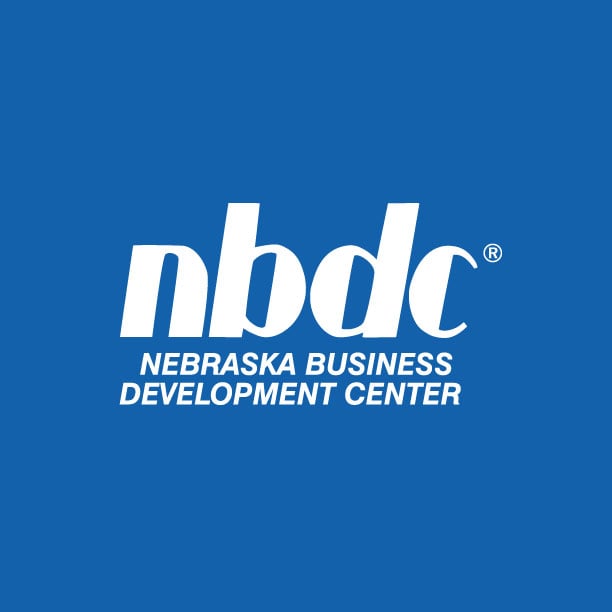Nebraska SBDC Blog
- UNO
- College of Business Administration
- Nebraska Business Development Center
- Nebraska SBDC Blog
- Additional Resources
- SBDC Blog
- Staff Directory
- NBDC News Center
FAQs about COVID-Related Employment Law Compliance
Posted by NBDC Communications on Aug 10, 2020 09:50:51 AM


Across the country, small businesses are grappling with numerous operational and employee management challenges with the COVID-19 pandemic. Whether you’ve remained in business during the crisis — or are just now initiating your return-to-work plans — you must balance new federal, state and local legal requirements against your typical business practices. It takes keen awareness and action to protect yourself from legal risks during the crisis, while also keeping your employees safe from the virus.
Here is some guidance on how to interpret and handle the biggest employee management issues arising today:
Q: What should we communicate to employees about the COVID-19 virus?
A: This depends on your business, as well as what is happening with the virus in your area (which changes day by day). In general, you should communicate the measures you are taking internally to help limit the spread of disease, changes to scheduling or hours of operation, whether remote work will be permitted (and the rules around working remotely), and any travel restrictions. You also need to discourage employees from coming to work if they have been exposed to the virus or exhibit any symptoms of the virus, in addition to addressing how the company will handle absences relating to the pandemic crisis.
Q: Can I send an employee home if they feel sick or are coughing?
A: Yes, you can require employees who feel sick — or appear to be sick — to leave the workplace. The Centers for Disease Control and Prevention (CDC) states that employees who exhibit influenza-like symptoms at work during a pandemic should not remain at work. You may also require employees exhibiting symptoms to get medical clearance before returning to work.
Q: It makes sense for us to allow remote work during the pandemic. How can we protect our business with this working arrangement?
A: If you have employees working from home due to the virus, it’s important to develop a remote workers policy that sets clear expectations. It should address such questions as: Can every employee work from home or are there personnel who must continue to report to the workplace? Do teleworkers always have to be available during working hours? How will meetings occur, and will all remote employees have access to the necessary technology? Can employees work on their own personal devices, like laptops and tablets?
Also, for non-exempt hourly employees, be sure to establish rules for tracking work hours and managing overtime. Finally, you’ll want to provide regular status updates to all workers, including those working from home.
Q: Which employees are covered under the Families First Coronavirus Response Act (FFCRA)?
A: All employees working for a covered business qualify for up to two weeks (or 80 hours) of emergency paid leave if they are unable to work — or unable to telework for various reasons related to the virus (see below). Employees who have been employed for at least 30 calendar days are eligible for up to an additional 10 weeks of paid leave to care for a child under certain circumstances related to COVID-19.
Q: Under what circumstances may an employee take paid leave?
A: An employee qualifies for paid time off if he or she:
- Is subject to a federal, state or local quarantine or isolation order related to COVID-19 — or is caring for an individual similarly ordered
- Has been advised by a healthcare provider to self-quarantine related to COVID-19 — or is caring for an individual similarly instructed
- Is experiencing COVID-19 symptoms and seeking a medical diagnosis
- Is caring for a child whose school or place of care is closed (or childcare provider is unavailable) for reasons related to COVID-19
- Is experiencing any other substantially similar condition specified by the Secretary of Health and Human Services
Q: Does the FMLA still apply during COVID-19, or just the FFCRA?
A: If your business is subject to the federal Family and Medical Leave Act (FMLA), there are situations where an employee can qualify for both types of leave for a COVID-related illness. For example, if an employee contracts the virus or has to care for a family member who contracts it, the employee is entitled to two weeks of paid leave under the FFCRA. If the illness extends beyond two weeks, however, the employee may be eligible for up to 12 additional weeks of unpaid leave (along with job protection) under the FMLA.
Q: What about state and local leave laws? Do they apply as well?
A: Yes! A handful of states and cities have introduced brand-new COVID-19 leave laws, or expanded existing laws to cover COVID-related reasons. In general, these new or modified sick leave laws provide coverage for many of the same reasons as the FFCRA during the COVID-19 crisis. Some of the brand-new laws are in the following areas: San Jose, CA COVID-19 Paid Sick Leave, San Francisco, CA Public Health Emergency Leave, Los Angeles, CA COVID-19 Paid Sick Leave, Colorado Emergency Rule Requiring Paid Sick Leave and New York Paid Sick Leave. Plus, in the following states, counties and cities, existing paid sick leave laws were temporarily broadened to include COVID-specific coverage: States:
- Arizona, California, Connecticut, Massachusetts, Michigan, Nevada, New Jersey, Oregon and Washington
- Counties/Cities: Emeryville, CA, Oakland, CA, San Diego, CA, Chicago, IL, Cook County, IL, Duluth, MN, Minneapolis, MN, St. Paul, MN, New York City, NY, Philadelphia, PA, Seattle, WA, Washington, D.C.
Q: With everything we’re juggling right now, what is the best way to keep up with the latest labor law postings?
A: If you’re permitting remote work during this time, consider the Poster Guard® E-Service for Remote Workers. Using this service, employees simply click a secure link via email to view applicable federal, state, city and county postings. This ensures that employees have access to important government-mandated postings relating to emergency paid leave laws, earned sick time, disability and unemployment insurance, and other rights and obligations.
Additionally, the Mandatory Employee Handout Service gives you immediate access to notifications often triggered by employee events — such as a request for medical leave. You’ll have all the employee notifications required by federal, state, county and city laws.
Be aware, too, that the new FFCRA posting is now available to meet your posting requirements. Or, eliminate the work and worry altogether by choosing Poster Guard® Compliance Protection for a full year of complete labor law compliance. You’ll receive all your mandatory federal, state and local postings — plus the required FFCRA notice.
Printed with permission from ASBDC. For the original article, click here.
Posts by Tag
Contact Us
- Administrative Office
- 200 Mammel Hall
- 6708 Pine Street
- Omaha NE 68182
- 402.554.NBDC (6232)
- nbdc@unomaha.edu
- Consultant Directory